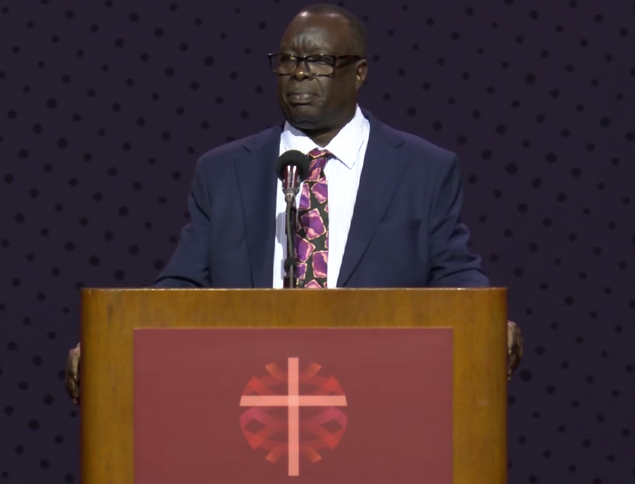Bishop James Lagos Alexander, chairman of the African Inland Church, described the changeable power of the gospel, particularly through a personal journey of unshakable faith in Sudan, facing brutal persecution that “being a Christian was a crime” during the civil war of 1983-2005.
Bishop Alexander told the powerful tale of imprisonment, torture and ultimately victory in the European Parliament on evangelism in Berlin. He recalls a time when “the church was bulldozed in our own eyes; the pastor was imprisoned and beaten.” This did not stop him. Instead, he and his colleagues took him to the city and boldly declared the gospel.
This courageous act led to imprisonment and torture. He explained the harsh reality of African prisons, saying, “You don’t like staying for an hour.” The assault and torture were serious, but Bishop Alexander and his fellow preachers never wavered.
The Anchor’s poem in James 1:2-3 says that whenever you face many kinds of trials, you consider brothers and sisters, because you know that your test of faith will create perseverance.
He recounted his reunion with Rev. Jeremiah, a friend he had never seen in 30 years, due to his shared experiences of imprisonment and torture in the 1990s. “We were tortured together. We were imprisoned together. We were preaching the gospel together. We sometimes ate nothing. We spent the night without food, but for Christ Jesus, Bishop Alexander emphasized the deep bonds that were forged through shared suffering.
He emotionally described the moment he saw Rev. Jeremiah again, saying, “My friend, I thought you were dead, and he said, ‘I’m alive.’ Pastor Jeremiah’s survival served as a powerful symbol of God’s protection against all possibilities.
Missionary’s legacy
Bishop Alexander also reflected the legacy of the missionary who preceded him. Many of them died in Africa while spreading the gospel. He acknowledged their sacrifices, saying, “They went to Africa in the jungle of South Sudan, they were nowhere to be in Africa, they preach the gospel, and many of them died there.” He considered himself the fruit of their labor. It is a testament to the lasting impact of their devotion.
“Come here to this Congress, I said, ‘Thank you, God,’ I have come to say to you, so if your father or your grandfather dies in Africa as a missionary, today I am here to tell you one of the fruits that you raised. ” He reflected the missionary’s unwavering commitment. “They keep saying in Africa.
Persecution intensified, leading to a period of deep solitude and despair. Bishop Alexander said, “The pastors were all locked up. The missionaries were kicked out. The Christian church felt lonely. We felt lonely. Many were almost dying. No one cared, we prayed, we wept, intensified persecution. The intensity of the suffering mostly considered stopping him, but the call from my friend Gary Lundstrom changed everything.
Lundstrom’s call and subsequent arrival of Pastor Franklin Graham led to a turning point. Graham came to Sudan at the invitation of then President Omara al-Bashir, who was persecuting Christians despite the dangers. Importantly, Graham revealed that he is not a president, but a guest in the church.
This bold attitude allowed him to act as a defender of persecuted Christians. Bishop Alexander and his fellow pastors presented a list of requests, including requests to stop the destruction of the church and the imprisonment of the pastor. Surprisingly, the president agreed to allow the rebuilding of the destroyed church. As a result, over 500 churches have been built throughout Sudan.
Bishop Alexander concluded his account by highlighting the importance of an unwavering commitment to the gospel, regardless of cost. He emphasized the changeable power of the gospel, citing the example of a former poor, poor and alcoholic elder in his church, whose life was fundamentally altered by faith.
The joy and resilience of this elder influenced wealthy neighbors who witnessed faith and ultimately sought out the church, even in the face of extreme poverty. The story highlights Bishop James’ central message. The changeable power of the gospel affects the entire community and even those who initially opposed it, beyond individual lives. The bishop urged the audience to embrace the Gospel mission regardless of the challenges and sacrifices involved.
